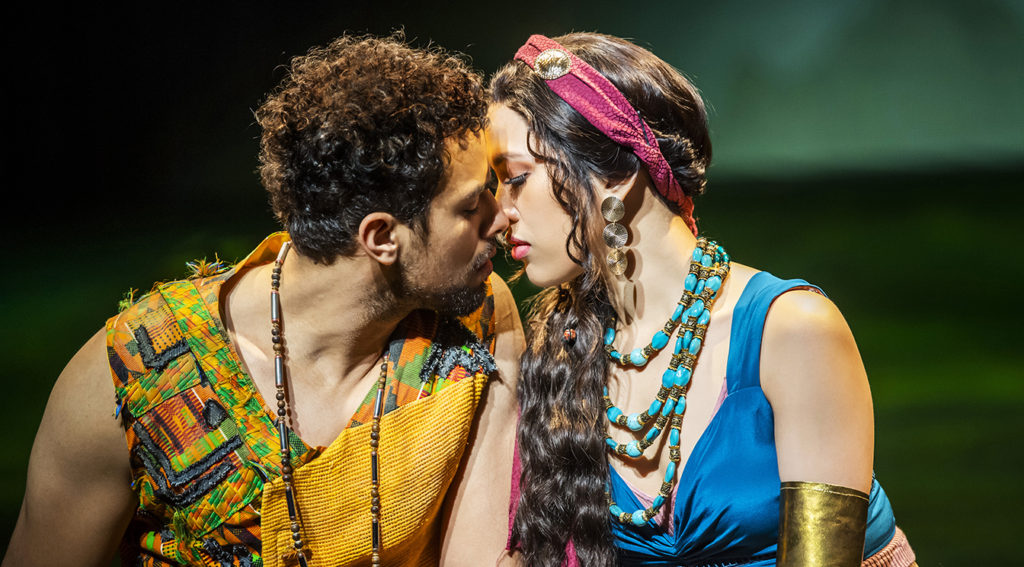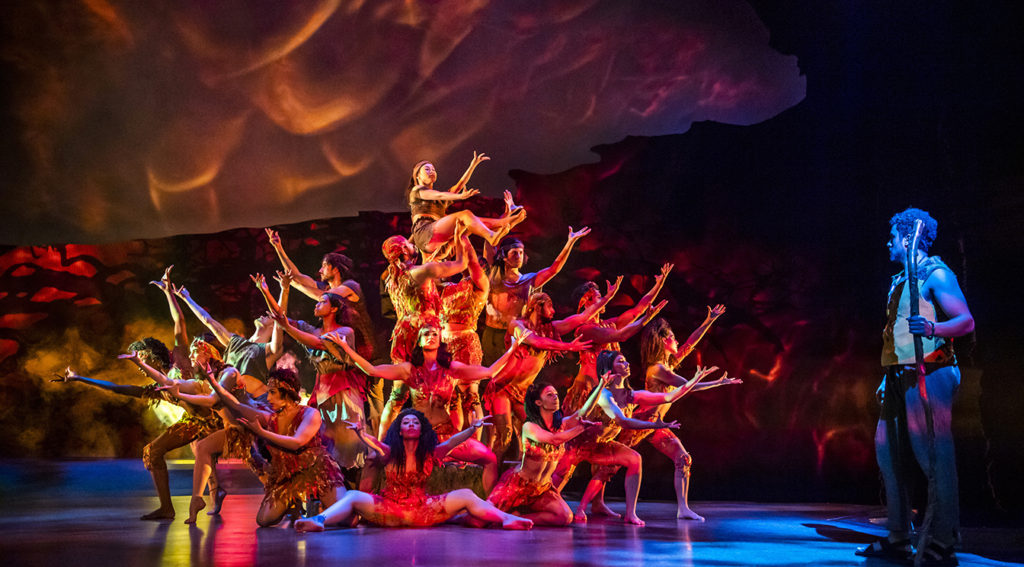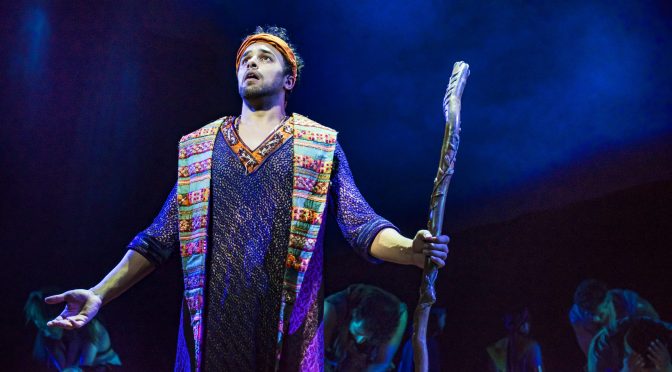There’s plenty of theatre aimed at younger audiences that everyone can enjoy. This musical about Moses is not one of them. It’s a right royal disaster.
The show succeeds in its painfully clear aim of being big and bold. And, while running with the alliteration would be fun, it isn’t boring – Scott Schwartz’s swift direction prevents that. Actually, it’s just bad.
Problems come from a dependence on the show’s origin as an animated film. Projections, from Jon Driscoll, are impressive but overused and only reinforce how everything about The Prince of Egypt is two-dimensional.
Luke Brady is instructed to give us a modern Moses and he delivers. But the character is flat and his development paper thin. The focus on his adoptive family, the Egyptian Pharaohs, isn’t a bad move. But, accompanied by a pantomime High Priest and some confusing costumes (Ann Hould-Ward), what should be a major role for Liam Tamne, as Ramses, is simply a sketch.

It’s good that women are brought to the forefront of the story. But Moses’ sister Miriam and his wife Tzipporah are further missed opportunities – another shame as Christine Allado and Alexia Khadime are exciting performers. The former just acts delighted every time she bumps into her brother and starts singing about deliverance without any preamble. Mrs Moses bangs on about freedom in a cartoonish costume.
Composer Stephen Schwartz has an impressive back catalogue and is the show’s big selling point, but his work here is lacklustre. These are songs you forget before they’ve even finished. And the score is horribly repetitive: anthems and ballads merge, dripping with sentiment and cliché. Every number has an unfailingly loud end. It’s enough to make you wonder if the Jews went into desert for a bit of peace and quiet.
The only thing worse than the lyrics, which ram home predictable rhymes relentlessly, is when people speak. The dialogue by Philip LaZebnik is awful. Take: “If you don’t choose your own path, you’re lost wherever you go.” Who knew self-help books were popular in Ancient Egypt?

Possibly to distract from all this, The Prince of Egypt is very much a dance show. Burning bushes and bloody rivers keep a crack squad of athletes impressively busy. But choreographer Sean Cheesman isn’t the miracle this show badly needs. Right from the start, with a bunch of very healthy-looking Hebrew slaves, the execution is excellent. But each trick is repeated too often. I guess there’s only so many ways you can move around fake stones artistically, but I’m pretty sure I’ve now seen them all.
The few attempts to inject humour are dire. And the tone overall is portentous and grates quickly. Having a Moses for a modern age fails. That the prophet has a crisis of faith and is confused about his identity is interesting. But the show hasn’t the depth to explore either. Moses even refers to God’s “magic” at one point. Bizarrely, religion is pushed to the side. The oft repeated hit number for the show, ‘(There can be miracles) when you believe’ – those self-help books again – becomes a nonsense. It’s never really clear what Moses, of all people, believes in.
Until 31 October 2020
www.theprinceofegyptmusical.com
Photos by Tristram Kenton and Matt Crockett

